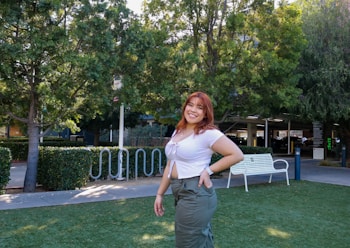 A2 - Elementary Spanish
A2 - Elementary Spanish
At the A2 level, a student is considered to be at the Elementary stage.
Students at this stage can converse in simple terms about common daily situations, and understands frequently used expressions.

alumno del instituto
The term 'alumno del instituto' is composed of two parts. 'Alumno' is a Spanish term that translates to 'student' in English. On the other hand, 'instituto' refers to an educational institution that is often used to refer to a high school in English context. Therefore, when combined, 'alumno del instituto' translates to 'high school student' in English.

amable
The Spanish word 'amable' translates to 'kind' in English. It's used to describe someone who is friendly and considerate. For example, when referring to a person who behaves nicely you might say 'Él es muy amable', which translates to 'He is very kind'.
Example sentences with amable →
ambulancia
The Spanish word 'ambulancia' translates to 'ambulance' in English. An ambulance is a specially equipped vehicle that is used to transport sick or injured individuals to, from, or between places of treatment such as hospitals and clinics. The word 'ambulancia' in Spanish and 'ambulance' in English originated from the same root, namely the Latin word 'ambulare', meaning 'to walk or move about', which is a reference to early medical care where patients were moved by lifting or wheeling.
Example sentences with ambulancia →
amueblado
The Spanish word 'amueblado' translates to 'furnished' in English. It is mainly used to describe a property, usually a room or a house, that comes with furniture. For example, if a house is rented 'amueblado', that means it is equipped with necessary furniture like chairs, tables, beds etc. This term is commonly seen in real estate and rental contexts.
Example sentences with amueblado →
anuncios
The Spanish word 'anuncios' translates to 'ads' in English. It is used to refer to advertisements that are designed to encourage the purchase of a product or service. These can appear in various formats and through different channels, including newspapers, television, radio, websites, and public spaces. The concept of 'anuncios' is a fundamental part of the marketing and communication strategy for many businesses, helping them to promote their offerings and reach their target audience.
Example sentences with anuncios →
aperitivo
The term 'aperitivo' refers to a small dish usually consumed prior to the main meal to stimulate or enhance one's appetites. In English, it can be roughly translated as a 'snack' or 'appetizer'. This is typically a light fare and can encompass various types of foods, from simple finger foods to complex culinary creations. It is a common part of meal tradition in several Spanish and Latin cultures.

aprender una fórmula
The Spanish phrase 'aprender una fórmula' translates to 'learn a formula' in English. It is a verb phrase commonly used in academic and professional settings, especially in the fields of mathematics, physics and chemistry. The word 'aprender' means 'to learn', and 'una fórmula' is translated as 'a formula'. Together, they are used to express the acquisition of knowledge or understanding of a specific formula.
Example sentences with aprender una fórmula →
aprender una regla
The Spanish phrase 'aprender una regla' translates to 'learn a rule' in English. It refers to the process of acquiring knowledge about a principle or guidelines that dictate what actions should be taken or avoided in certain circumstances. Like in English, this phrase can be used in different contexts in Spanish, including sports, academics, or societal norms. 'Aprender' means 'learn', 'una' means 'a', and 'regla' means 'rule'.
Example sentences with aprender una regla →
aprobar
The Spanish verb 'aprobar' generally means 'to pass', as in passing a test or approving something, like a law. Though it can be translated to 'adopt' in certain contexts, most often, it is used refer to passing or approving something. For instance, in a legislative context, when a law is approved, it may be translated as 'adopted'. However, caution should be used when translating, as context significantly impacts the meaning of this verb.
Example sentences with aprobar →
arquitecto
The Spanish word 'arquitecto' translates to 'architect' in English. An architect is a person who designs buildings and prepares plans to construct them. The same duties apply to an 'arquitecto' in Spanish-speaking contexts. The profession involves practical, technological, and aesthetic knowledge to create spaces that meet various needs and impacts both the users and the environment positively.
Example sentences with arquitecto →
arte
The Spanish word 'arte' is equivalent to 'art' in English. It refers to the expression or application of human creative skill and imagination, typically in a visual form such as painting or sculpture, producing works to be appreciated primarily for their beauty or emotional power. 'Arte' can also denote other endeavors or activities considered as requiring skill and creativity.
Example sentences with arte →
artista
The Spanish word 'artista' is used just like how 'artist' is used in English. It can be used to describe someone who creates pieces of art such as drawings, paintings, sculptures, etc. or someone who is skilled in a profession. It is a gender-neutral term so it can be used to refer to a male or female artist.
Example sentences with artista →
atún
The Spanish word 'atún' translates to 'tuna' in English. 'Atún' is a noun which refers to a type of saltwater fish that is often used in cooking. It is a popular choice for dishes like salads, sandwiches and sushi. In Spain, 'atún' is a common ingredient in the traditional dish known as 'tapas'.

aula
The Spanish word 'aula' translates to 'classroom' in English. It refers to a place within an educational institution where teaching and learning occur. It is typically furnished with a series of seats and desks and equipped with tools and materials conducive for learning and teaching processes. It can also refer to a digital space for online learning. In both physical and digital contexts, 'aula' serves as a space where students and teachers interact for educational purposes.

azafata
The Spanish word 'azafata' translates to 'stewardess' in English. It's generally used to refer to a woman whose job is to take care of the needs of passengers on a plane. However, this term is also applicable to a woman who serves passengers on a train or a ship. The primary role of a 'azafata' is to ensure passenger safety and comfort during a journey.
Example sentences with azafata →
bajar
The Spanish word 'bajar' primarily translates to 'get down' in English. It is a verb used to describe the action of descending or coming down from a higher position to a lower one. For instance, it can be used in contexts like getting down from a vehicle, lowering volume or intensity, or even going downstairs. It is important to note that the word 'bajar' can have variant meanings depending on the context in which it is used.

bañador
The Spanish word 'bañador' translates to 'swimsuit' in English. It's a piece of clothing worn for swimming. This word is mainly used in Spain, and in some Latin American countries, you might hear 'traje de baño' or 'malla'. The term 'bañador' can refer to any type of swimsuit, whether it's a one-piece, bikini, or swim trunks.
Example sentences with bañador →
bañarse
The Spanish word 'bañarse' is a reflexive verb which, in English, is translated as 'to bathe'. It denotes the action of washing oneself, typically in a bathtub. Just like in English, 'bañarse' can be used in various contexts such as 'bañarse en la piscina' which means 'to swim in the pool'. It's important to note that when using reflexive verbs in Spanish, personal reflexive pronouns are needed.
Example sentences with bañarse →
bañera
The Spanish word 'bañera' translates to 'bath' in English. It is a noun, commonly used in the context of bathing or describing bathroom fixtures. The word 'bañera' could also refer to a bathtub, the container in which one takes a bath. Like in English, it's used in many contexts in conversation.
Example sentences with bañera →
bebida con alcohol
The Spanish phrase 'bebida con alcohol' translates to 'alcohol drink' in English. This phrase is used to refer to any drink that contains alcohol, such as beer, wine, or spirits. It is often used in contexts such as bars, restaurants or social gatherings where alcoholic beverages are served.

bebida con hielo
The Spanish term 'bebida con hielo' translates to 'drink with ice' in English. This phrase is used when ordering a beverage and wanting it to be served with ice. It can pertain to various kinds of beverages, such as water, soda, juice, or alcoholic drinks. You would use it in a restaurant, bar, or any other place where drinks are served. Remember, in some Spanish-speaking regions, tap water may not be safe to drink, so specifying 'hielo', or ice, made from purified water might be important.

bebida sin alcohol
The Spanish term 'bebida sin alcohol' translates to 'alcohol free drink' in English. This is a beverage that does not contain alcohol, often served as a non-alcoholic option at social gatherings or used as a base in mocktail recipes. It can include a range of drinks, such as soda, juice, or anything else that is consumed in a similar manner to alcohol but without its intoxicating effects.

bebida sin hielo
The Spanish phrase 'bebida sin hielo' translates to 'drink without ice' in English. It is often used in restaurants or bars to specify the preferred serving style of a beverage. In this context, 'bebida' means 'drink', 'sin' means 'without', and 'hielo' means 'ice'. Therefore, if you want to order a drink without ice in a Spanish-speaking location, you could say 'Una bebida sin hielo, por favor.'

bebé
The word 'bebé' in Spanish is used to refer to a very young child, especially one newly or recently born. It can also be used to refer to someone in an affectionate way. However, it is primarily used to mean a baby or infant. Context matters with this word as it changes meaning based on the conversation.
Example sentences with bebé →
biblioteca municipal
The Spanish phrase 'biblioteca municipal' translates to 'municipal library' in English. A municipal library, often funded by local governments, serves the needs of a specific town, city, or county. It's a place where people can borrow books, use the internet, attend events, and access other educational and cultural resources. Similarly, a 'biblioteca municipal' in Spanish-speaking countries offers these services to their local communities.

biblioteca pública
The Spanish term 'biblioteca pública' directly translates to 'public library' in English. A public library is a library that is accessible by the general public and is usually funded from public sources, such as taxes. It is a place where books and other informational materials like newspapers, magazines, DVDs, computers, etc., are kept for borrowing or reference. Libraries often offer services such as reading rooms, book clubs, and educational programs. The institution aims to provide a space dedicated to self-improvement, education, and recreation for all ages and backgrounds.

billete
The Spanish word 'billete' translates to 'ticket' in English. It generally refers to a piece of paper or small card that gives the holder a certain right, especially to enter a place, travel by public transport, or participate in an event. For instance, in the context of travel, if you're taking a train or a bus, you may need to buy a 'billete'. It should be noted that 'billete' can also mean 'banknote' or 'bill' in some contexts, indicating a piece of paper money.
Example sentences with billete →
biquini
The Spanish word 'biquini' translates to 'bikini' in English. This term is used to describe a two-piece women's swimsuit. It's typically worn in warm climates or at the beach and consists of a bra top and a bottom part that is designed not to cover the navel. It is named after the Bikini Atoll, a site of atomic testing, because of the intended provocative and explosive impact on the viewer.
Example sentences with biquini →
bizco
The Spanish word 'bizco' translates to the English word 'squinting'. It describes the action of partially closing one's eyes, usually in response to bright light, or as a way to try and see something more clearly. It is not something a person is always doing, but rather an action people do under certain circumstances. For example, you may squint when the sun is very bright or when you are trying to read small text.

blusa
The Spanish word 'blusa' translates to 'blouse' in English. It is a term used to refer to a type of upper garment that is worn by women. It generally features a loose-fitting design and comes in a variety of styles, cuts, and patterns. From casual blouses that are perfect for everyday wear to more formal types ideal for office settings or special occasions, 'blusa' broadens one's wardrobe options.
Example sentences with blusa →